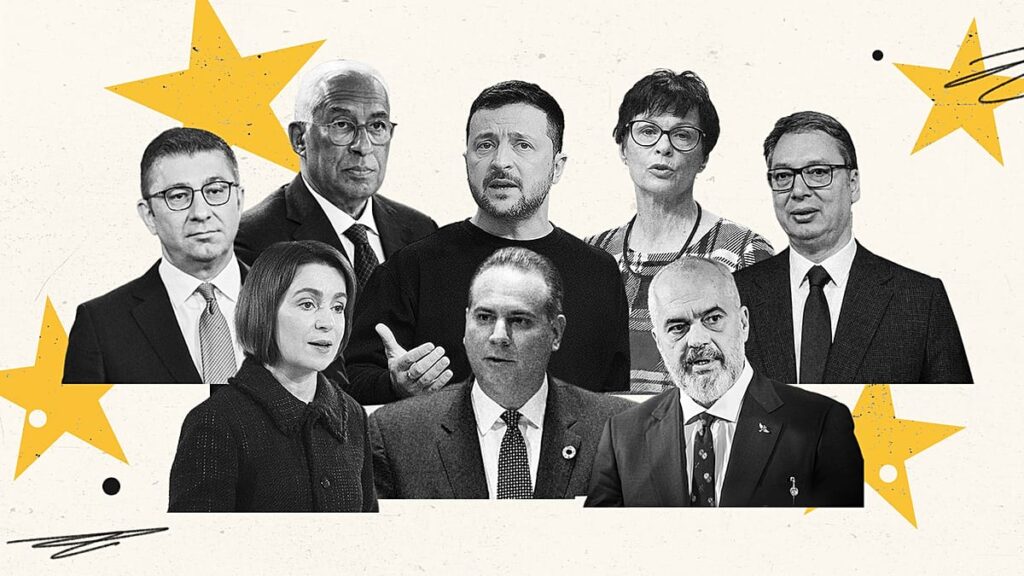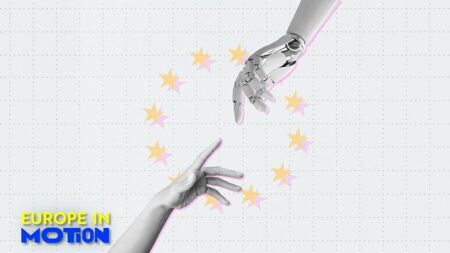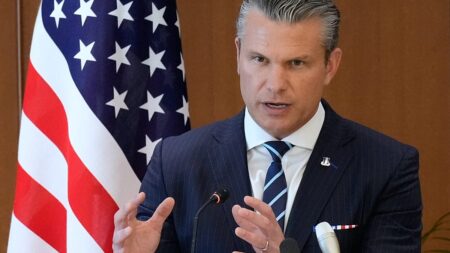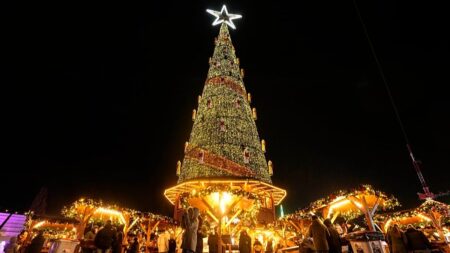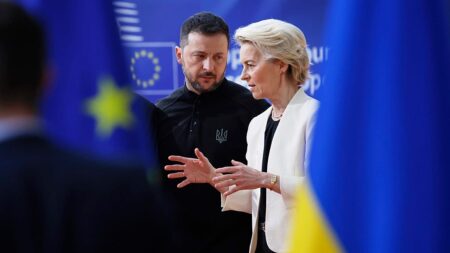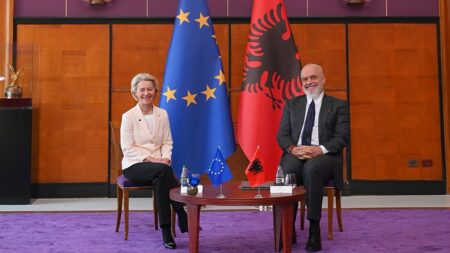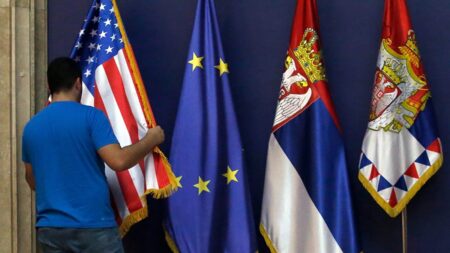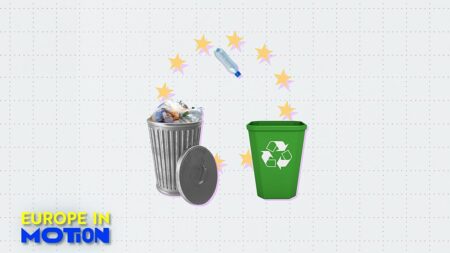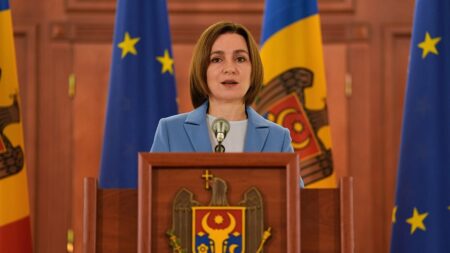Ukraine has set its sights on enlargement, but also on reparations
For more than a year, Ukraine has been pleading with EU countries to break the deadlock caused by the Hungarian veto and open the first cluster of negotiations, known as “Fundamentals”.
But there is one issue in Kyiv that has greater urgency. President Volodymyr Zelenskyy, who will take part in today’s summit, has told EU leaders that his country would need a fresh injection of financial and military assistance next year, ideally at the “very beginning”.
Member states agree with Zelenskyy’s assessment but lack a concrete solution to plug the gap. The European Commission has proposed a bold plan to use the immobilised assets of the Russian Central Bank to issue a €140 billion loan to Ukraine, which could help cover the needs for 2026, 2027 and even beyond. The project, however, is being held up by Belgium, the prime keeper of the assets.
Here’s everything you need to know about the so-called reparations loan.
What is the reparations loan for Ukraine and why is the EU stuck?
An audacious plan to use Russia’s immobilised assets to issue a €140-billion loan to Ukraine is held up by EU leaders. Here’s why.
Joining the EU without enjoying the veto right: A way to break the deadlock?
By Vincenzo Genovese
As candidate countries have been waiting for several years to conclude the negotiations, one of the ways to break this deadlock has come in the form of granting newcomers EU membership without the veto right.
At the moment, there has been no such discussion at any level among EU countries on this proposal, three different EU sources told Euronews. But some experts think that this can change in the near future.
“It is undeniable that this would introduce, of course, a differentiation between new and existing member states. But it would be temporal in nature,” Steven Blockmans, from the think tank Centre for European Policy Studies (CEPS), told Euronews.
According to him, this option would facilitate decision-making among member states, it would be time-limited and acceptable from a legal standpoint.
“It would not create a breach (in the EU law) because it would be applied to all future candidates joining the EU, so there would be no discrimination among them.”
Read more in the story below:
![]()
EU enlargement: How to end the wait?
EU hopefuls from the Western Balkans have faced a years-long delay on their membership path. Ahead of its flagship enlargement summit on 4 November, Euronews e…
The EU has a ‘responsibility’ towards candidate countries
Euronews sat down with Marta Kos last week for a group interview in which the enlargement commissioner said that the EU has learnt from its mistakes with the UK and Georgia and is now prepared to be “more assertive” including by investing in candidate countries to counter fake narratives.
Kos, who took office in December last year, said 2025 marked a departure for the way the European Commission approached enlargement, notably because “it was the first time that we invested resources, we have invested men and women power to help fend off foreign malign interference”.
“This included for the first time the deployment of the EU’s rapid hybrid response team,” she added.
The beneficiary was Moldova, whose bid to become an EU member state was launched just weeks after Russia rolled its tanks into Ukraine in its full-scale invasion in early 2022.
Read more below:
![]()
EU now ‘more assertive’ to help candidate countries fight interference
The EU has a “responsibility” to help candidate countries stay on their European path, the bloc’s enlargement chief said this week ahead of the release of the…
Get ready for an action-packed day
Today is D-Day for enlargement as leaders from six of the candidate countries will join Euronews in Brussels for an exclusive summit to discuss their accession progress, just as the European Commission will unveil its annual report card.
Here’s the schedule for the summit (all times CET):
- 14:10: Keynote by European Council President Antonio Costa;
- 14:16: The Europe Conversation with Ukrainian President Volodymyr Zelenskyy;
- 14:38: The European Conversation with Moldova’s Maia Sandu;
- 14:59: EU Enlargement Talks panel with Albania’s Edi Rama, North Macedonia’s Hristijan Mickoski, and Montenegro’s Filip Ivanović;
- 16:00: The Europe Conversation with Marta Kos;
- 16:24: The Ring with MEPs David McAllister and Marc Botenga;
- 16:53: The Europe Conversation with Serbian President Aleksandar Vučić.
But before that, our team of crack reporters will also bring you coverage of Marta Kos appearing in front of the European Parliament’s foreign affairs committee where she will preview the enlargement report.
Read the full article here







